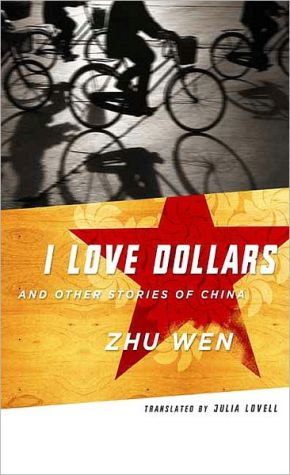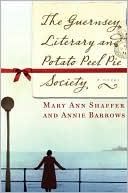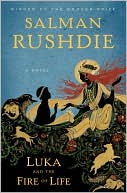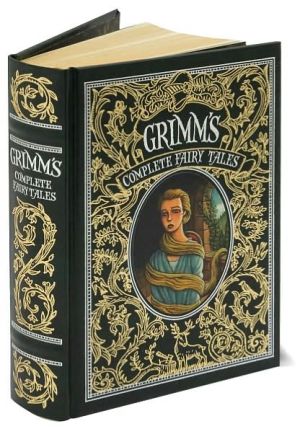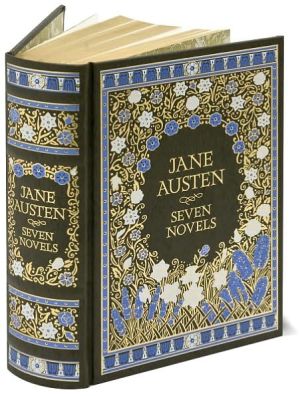I Love Dollars and Other Stories of China
In five richly imaginative novellas and a short story, Zhu Wen depicts the violence, chaos, and dark comedy of China in the post-Mao era. A frank reflection of the seamier side of his nation's increasingly capitalist society, Zhu Wen's fiction offers an audaciously plainspoken account of the often hedonistic individualism that is feverishly taking root.\ Set against the mundane landscapes of contemporary China-a worn Yangtze River vessel, cheap diners, a failing factory, a for-profit hospital...
Search in google:
In five richly imaginative novellas and a short story, Zhu Wen depicts the violence, chaos, and dark comedy of China in the post-Mao era. A frank reflection of the seamier side of his nation's increasingly capitalist society, Zhu Wen's fiction offers an audaciously plainspoken account of the often hedonistic individualism that is feverishly taking root.Set against the mundane landscapes of contemporary China-a worn Yangtze River vessel, cheap diners, a failing factory, a for-profit hospital operating by dated socialist norms-Zhu Wen's stories zoom in on the often tragicomic minutiae of everyday life in this fast-changing country. With subjects ranging from provincial mafiosi to nightmarish families and oppressed factory workers, his claustrophobic narratives depict a spiritually bankrupt society, periodically rocked by spasms of uncontrolled violence. For example, I Love Dollars, a story about casual sex in a provincial city whose caustic portrayal of numb disillusionment and cynicism, caused an immediate sensation in the Chinese literary establishment when it was first published. The novella's loose, colloquial voice and sharp focus on the indignity and iniquity of a society trapped between communism and capitalism showcase Zhu Wen's exceptional ability to make literary sense of the bizarre, ideologically confused amalgam that is contemporary China.Julia Lovell's fluent translation deftly reproduces Zhu Wen's wry sense of humor and powerful command of detail and atmosphere. The first book-length publication of Zhu Wen's fiction in English, I Love Dollars and Other Stories of China offers readers access to a trailblazing author and marks a majorcontribution to Chinese literature in English.Publishers WeeklyWritten during the mid- to late-1990s, Wen's first work to be translated into English is a collection of bleak, absurdist tales chronicling the underside of China's capitalist miracle as experienced by young men whose lives exhibit none of the glittering promise of economic progress. In the title novella, a son haggles with prostitutes in an embarrassingly misguided attempt to entertain his visiting father. In "A Hospital Night," a young man is manipulated by his girlfriend into keeping watch over her sick and resentful father in a hospital staffed by brutish nurses. The workers in "Ah, Xiao Xie" try desperately to quit their jobs at an under-construction and over-budget "national showcase" power plant that is unable to produce power, but are prevented from doing so. Zhu Wen portrays the banal details of his settings with precision it's no surprise that he has since transformed himself into an award-winning filmmaker (Seafood, 2001). Given the abiding sense of hopelessness, the book has its tedious moments, but it is saved by a narrative voice that is by turns low-key, flippant and neurotic, and highly readable as translated by Lovell. (Jan.) Copyright 2006 Reed Business Information.
So what should we do then? Well, we should go and do the things men do together, of course. But it's still only afternoon, the sun's still too high in the sky. Come on, what difference does that make? These days all you need is a couple of coins and it's night when you want it.\ Squatting on a step by the sidewalk, Father and I both raised our cups of Coke, glancing regularly across at each other, maintaining a silent dialogue. I ought to understand what my father needs, I thought. A son shouldn't shirk his filial duties. If, some distant day in the future, I should ever find myself at a loose end and free of the self-importance that comes with age, and run off to visit my son, I'd want him to figure out what was required, to be able to search out a few glimmers of fun for his hardworking father. I wouldn't want to end up with some idiot who only knew how to offer a pious faceful of empty respect. Listen to me, son, wherever you are right now, this thing they call respect is too intangible for me. We've all got things we could learn from money, from the beautiful dollar, from the strong yen, from the even-tempered, good-humored Swiss franc, from their straight-up, honest-to-goodness, absolute value.\ -from I Love Dollars
A Note About Chinese Names and RomanizationAcknowledgmentsDa Ma's Way of TalkingThe MatchmakerThe ApprenticeThe Football FanXiao LiuMr. HuReeducationThe Wharf\ Columbia University Press
\ Seattle Times\ - Wingate Packard\ Zhu Wen has a brilliant feel for detail in this colloquial, slangy translation.\ \ \ \ \ \ Taipei Times\ - Bradley Winterton\ Brilliant... Wonderful... I Love Dollars is a publication that's not to be missed.\ \ \ \ London Review of Books\ - Jonathan Spence\ Splendidly translated by Julia Lovell... an absorbing portrait of the go-go years in China.\ \ \ \ \ \ Seattle TimesZhu Wen has a brilliant feel for detail in this colloquial, slangy translation.\ — Wingate Packard\ \ \ \ \ \ Taipei TimesBrilliant... Wonderful... I Love Dollars is a publication that's not to be missed.\ — Bradley Winterton\ \ \ \ \ \ London Review of BooksSplendidly translated by Julia Lovell... an absorbing portrait of the go-go years in China.\ — Jonathan Spence\ \ \ \ \ \ Publishers WeeklyWritten during the mid- to late-1990s, Wen's first work to be translated into English is a collection of bleak, absurdist tales chronicling the underside of China's capitalist miracle as experienced by young men whose lives exhibit none of the glittering promise of economic progress. In the title novella, a son haggles with prostitutes in an embarrassingly misguided attempt to entertain his visiting father. In "A Hospital Night," a young man is manipulated by his girlfriend into keeping watch over her sick and resentful father in a hospital staffed by brutish nurses. The workers in "Ah, Xiao Xie" try desperately to quit their jobs at an under-construction and over-budget "national showcase" power plant that is unable to produce power, but are prevented from doing so. Zhu Wen portrays the banal details of his settings with precision it's no surprise that he has since transformed himself into an award-winning filmmaker (Seafood, 2001). Given the abiding sense of hopelessness, the book has its tedious moments, but it is saved by a narrative voice that is by turns low-key, flippant and neurotic, and highly readable as translated by Lovell. (Jan.) Copyright 2006 Reed Business Information.\ \ \ \ \ Kirkus ReviewsLiving out a dull, bad dream of botched politics, the stunted characters in these novellas exist in a no-man's-land, halfway between the failed utopia of Chairman Mao and the promise of McDonald's, Macintosh and MTV. Gingerly, resentfully, a churlish young writer negotiates the task of helping his girlfriend's ailing father pee into a bottle. It's a humdrum humiliation for all concerned, but one that's finally rewarded with "the poignant tinkle of water on plastic." Of such small things, Zhu Wen, a leading light of the "New Generation" of Chinese writers who came of age in the shadow of Tiananmen Square, crafts bitter, tragicomic, poetic fiction. "A Hospital Night" isn't much, plot-wise: Sick old man rages at smug youth. But the Worker's Hospital where the action's set functions fine as metaphor-nothing works there. Filial piety, the Confucian ideal, is a bankrupt mockery, and socialist camaraderie is a joke. The title story is even bleaker. Another callow writer goes trolling with his father for teenaged whores. Dad's a mildly amiable tippler; the son's an absolute cad, shacking up with a divorced older woman and then cheating on her. A sexaholic, he's materialism run amuck: "If we're not getting any otherwise and it's being sold on the market, why shouldn't we go and buy some?" "Pounds, Ounces, Meat" achieves a kind of Chekhovian surrealism: Yet one more disgruntled youngster, after falling for a girl "carrying a black parasol and a copy of I Love Dollars," embarks on a quest to determine the true value of a pork filet. In the author's China, everything's a mess, from the drifting Yangtze River steamer in "A Boat Crossing" to the fouled-up factory in "Ah, Xiao Xie."A jaundiced view ofpost-communist chaos. No heroism, no transcendence, just all-too-human desperation.\ \
